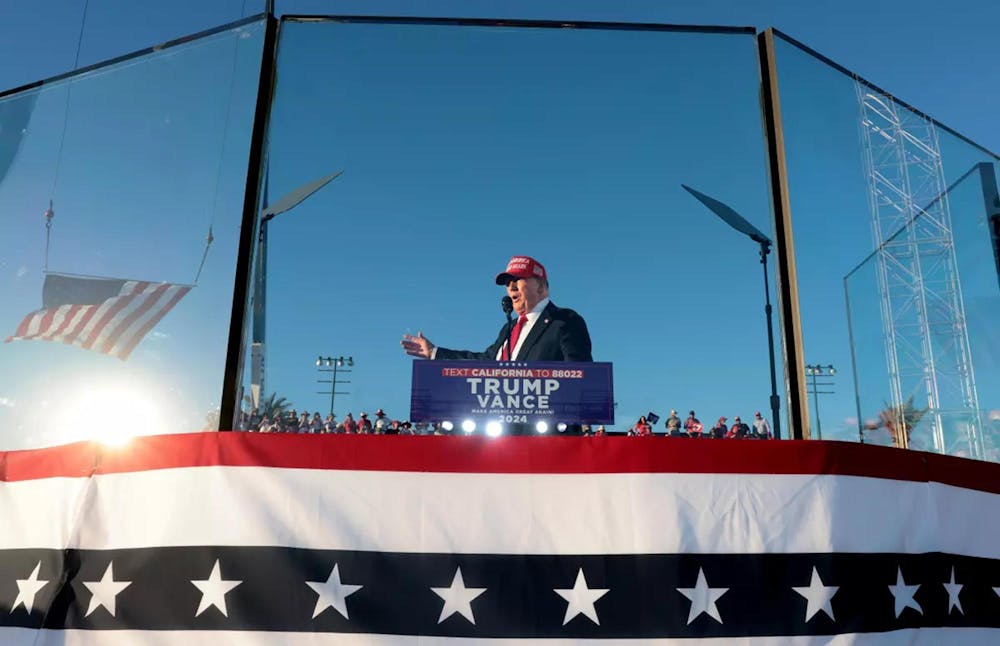Editor's note: All opinions, columns and letters reflect the views of the individual writer and not necessarily those of the IDS or its staffers.
Fourth months ago, I published a piece defending the federal bureaucracy in the context of the threat of a second Trump administration.
Today, we are facing the repercussions that come with undermining federal agencies by prioritizing political hires and weakening or destroying nonpartisan subject matter experts, public communication channels and anti-discrimination policies.
On Jan. 20, Trump’s first day in office, he passed an executive order entitled “Reforming the Federal Hiring Process and Restoring Merit to Government Service.” The same day, he passed “Ending Radical and Wasteful Government DEI Programs and Preferencing.” The latter references a Biden-era executive order entitled “Advancing Racial Equity and Support for Underserved Communities Through the Federal Government,” saying that it promoted “illegal and immoral discrimination programs.”
Though Trump and his administration want us all to fall for the fearmongering language and ideas that insinuate federal agencies are hiring and promoting minorities without reading their resume, or telling white employees and applicants that they are evil, that is simply not the case nor the goal of any kind of diversity, equity and inclusion program.
DEI programs are not intended to reward undeserving people simply due to their skin color or other traits unrelated to their character and abilities. They are not intended to make men, heterosexual or white people feel guilty or give up opportunities. The reality is that we live in an unequal society. It is okay, and beneficial, to address those disparities by lowering barriers to entry for certain groups through targeted initiatives, such as hosting a career fair at a school with higher proportions of historically excluded groups — like women, those from low-income backgrounds or racial minorities.
In order to create a more responsive, efficient and trustworthy civil service, we need to promote equal employment opportunities, welcoming workspaces and public initiatives targeted toward underserved communities.
The country is riddled with problems like increasing wealth inequality, mass incarceration, growing cost of education and environmental racism, among others. As much as it is nice to believe, we are far from a true meritocracy in which hard work is proportionally rewarded with success and wealth.
Biden’s federal workplace protections for underserved communities were good — not just for those communities but for all Americans. Trump’s administration wants us to fall for the zero-sum myth — the idea that when one group of people gets resources or opportunities, that will inherently deprive and rob others of the same.
Heather McGhee, an economic policy expert and author of “The Sum of Us: What Racism Costs Everyone and How We Can Prosper Together,” explains in her book that many white Americans have been led to believe that it is impossible for policies that benefit minorities or disadvantaged groups to also benefit those who are more privileged. She uses a basic example to introduce her idea, explaining how many Southern towns chose to completely drain their community pools when mandated to allow Black residents to use them, rather than share the pool. Thus, nobody got to swim.
In ending all programs with the word “equity” in them, the Trump administration is hurting all Americans — threatening our ability to live in a clean environment, be served by public employees who represent all types of Americans and enjoy welcoming and supportive workspaces that acknowledge systemic barriers.
Leila Faraday (she/her) is a junior studying policy analysis with minors in geography and urban planning.






